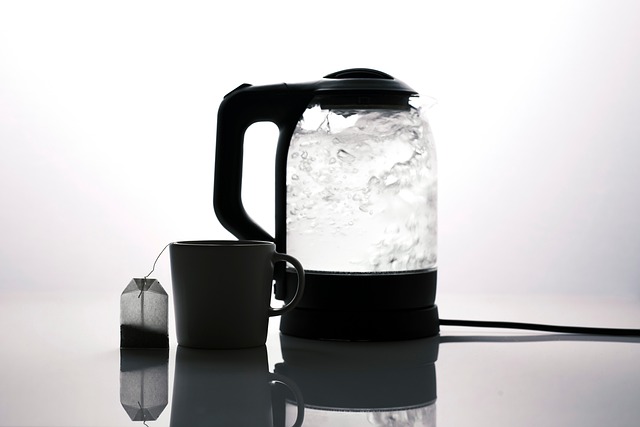Rusty water, unusual leaks, strange noises, and temperature fluctuations from your taps indicate a potential problem with your water heater. These signs suggest corrosion, buildup of mineral deposits, or tank damage, which can lead to severe issues like leaks, tank failure, and contamination of drinking water. Prompt action, including regular maintenance, is crucial to avoid higher energy bills and ensure a safe home environment; replace your water heater if these symptoms persist.
Are you tired of rusty, unpleasant-smelling water coming out of your taps? Or maybe you’ve noticed mysterious leaks and strange noises from your water heater—a telltale sign that something’s not right. This guide will help you recognize the signs you need a new water heater and walk you through the process of making an informed decision. From identifying rust as a red flag to understanding when it’s time for an upgrade, we’ll cover everything you need to know about replacing your water heater.
- Rusty Water: A Red Flag for Your Heater
- – Discuss the signs of rust in water and how it indicates a problem with the water heater.
- – Explain the potential health risks associated with rusty water.
Rusty Water: A Red Flag for Your Heater

Rusty water emerging from your taps isn’t just an unsightly issue; it’s a clear sign that something is amiss with your water heater. This red flag indicates corrosion within the tank, which can lead to leaks and even failure of the heating element. Over time, mineral deposits build up on the tank’s interior, causing rust to form and eventually puncture the tank, resulting in water damage and potential safety hazards.
If you’ve noticed persistent rusty water, it’s a strong indicator that your water heater is reaching the end of its lifespan or already malfunctioning. Other signs you need a new water heater include frequent temperature fluctuations, strange noises coming from the heater, and excessive energy bills caused by an inefficient unit. These issues underscore the importance of regular maintenance and prompt action to prevent more severe problems down the line.
– Discuss the signs of rust in water and how it indicates a problem with the water heater.

Rusty water is one of the clearest signs that your water heater needs attention. Rust can build up inside the tank, causing water to become discolored and potentially leading to a range of other issues. If you notice rusty water coming from your tap or showerhead, it’s an indication that the water heater’s interior is corroding, which can result in reduced water heating efficiency and even damage to plumbing fixtures over time.
Additionally, unusual leaks around the water heater are another significant indicator. Leaks can originate from various parts of the heater, such as connections, valves, or the tank itself. While small drips might seem harmless, they could signal a more substantial problem, especially if accompanied by strange noises. Noises like banging, rumbling, or whistling often stem from pressure buildup caused by rust or sediment accumulation, highlighting the need for professional attention and potentially a new water heater.
– Explain the potential health risks associated with rusty water.

Rusty water isn’t just an aesthetic concern; it can pose significant health risks. The presence of rust in your water supply may indicate corrosion within your water heater, which can lead to the leaching of harmful contaminants into your drinking water. These contaminants can include heavy metals like lead and iron, which are not only unpleasant in taste and odour but can also be detrimental to your health over time. Ingesting water containing high levels of these substances has been linked to various issues, including stomach upset, nausea, and, in more severe cases, long-term health problems.
Moreover, rusty water often signals a potential leak within the heating system. Strange noises coming from your water heater, such as banging or hissing, could be indicative of corroded pipes or components. Neglecting these signs can lead to more serious damage and increased energy costs. To avoid these health risks and unnecessary expenses, paying attention to the signs you need a new water heater—like rusted water or unusual noises—is crucial for maintaining a safe and efficient home environment.
If you’ve noticed rusty water, persistent leaks, or unusual noises coming from your water heater, it’s clear these are signs you need a new water heater. Ignoring these indicators can lead to more severe issues, including potential health hazards due to contaminated water. Don’t wait for a major breakdown; stay ahead by regularly inspecting your water heater and replacing it when necessary to ensure a reliable and safe hot water supply.
